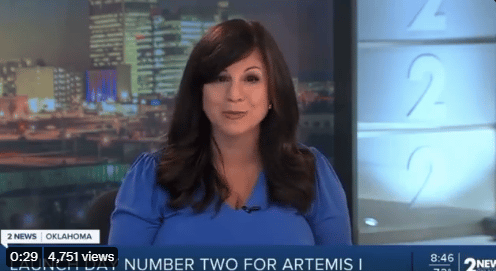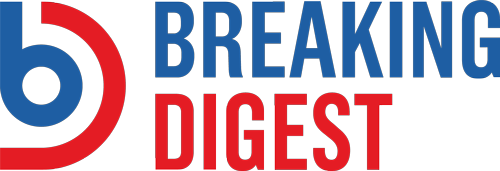
Julie Chin, an anchor for KJRH in Tulsa, Oklahoma, suffered what doctors believe to be the beginnings of a stroke on live TV.
In an exclusive interview with TODAY, Chin said she initially thought something was wrong with one of her contact lenses as she struggled to read the words on the teleprompter during the Sept 3 morning broadcast, but then she noticed that her hand and arm began to go numb.
Watch:
Chin also shared a text message that she sent to her husband during the medical episode, saying that she couldn’t type the right words.
“I need help, Something is not Run today. My work won’t work is working my help me,” the text message read.
From TODAY:
Julie Chin, an anchor for Tulsa, Oklahoma, NBC affiliate KJRH, says she experienced the early stages of a stroke during a live broadcast on Sept. 3.
“The past few days are still a little bit of a mystery, but my doctors believe I had the beginnings of a stroke live on the air Saturday morning,” she wrote Sept. 4 on Facebook. “Some of you witnessed it firsthand, and I’m so sorry that happened.”
During the broadcast, Chin struggled to read a story about the Tulsa Air and Space Museum, having trouble getting the words out correctly. Eventually, she tossed it to weather.
“I’m sorry. Something is going on with me this morning and I apologize to everybody,” she said.
Chin says she had no warning signs before the show that an incident was going to take place.
“The episode seemed to have come out of nowhere,” she wrote on Facebook. “I felt great before our show. However, over the course of several minutes during our newscast, things started to happen. First, I lost partial vision in one eye. A little bit later my hand and arm went numb.
“Then, I knew I was in big trouble when my mouth would not speak the words that were right in front of me on the teleprompter. If you were watching Saturday morning, you know how desperately I tried to steer the show forward, but the words just wouldn’t come.”
Chin wrote that her colleagues called 911 and she went to the hospital where she spent a few days undergoing tests.
“I’m thankful for the emergency responders and medical professionals who have shared their expertise, hearts, and smiles with me,” she wrote. “My family, friends, and KJRH family have also covered me in love and covered my shifts.”
Chin also says her prognosis looks good.
“I’m glad to share that my tests have all come back great. At this point, Doctors think I had the beginnings of a stroke, but not a full stroke. There are still lots of questions, and lots to follow up on, but the bottom line is I should be just fine,” she wrote.
Chin also encouraged others to be aware of the signs of a stroke.
“*Most importantly* I’ve learned that it’s not always obvious when someone has a stroke, and action is critical,” she wrote. “This acronym helps identify the symptoms to look for: BE FAST and then if needed, be fast and call 911.
B.alance (Sudden loss of balance)
E.yes (Sudden vision changes)
F.ace (Facial droop)
A.rms (One arm drifts downward)
S.peech (Slurred/confused speech)
T.ime & Terrible headache
“I’d appreciate your continued prayers as we do a little more testing and we continue to look into this. In a few days, I’ll be back at the desk sharing the stories I love with the community I love. Thank you all for loving me and supporting me so well.”
There are a variety of factors for a stroke, according to the American Heart Association, including high blood pressure, smoking, diabetes, high cholesterol, a sedentary lifestyle, obesity and artery diseases, excessive drinking, blood disorders and a history of transient ischemic attacks (TIAs or mini strokes).



